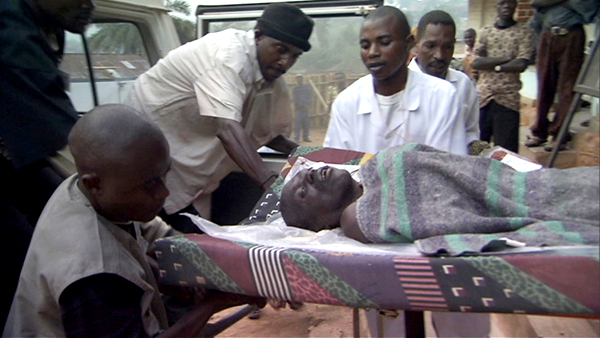|
Reviews of Recent Independent, Foreign, & Documentary Films in Theaters and DVD/Home Video

LIVING IN EMERGENCY:
STORIES OF DOCTORS WITHOUT BORDERS From the moment the first shot is framed, a filmmaker is already creating a narrative. That very choice of frame includes some elements, excludes others, emphasizes, understates, and even changes the very fundamental nature of what the audience sees simply through the choice of where to set the camera. The entire filmmaking process is an exercise in manipulating pieces of reality to shape this narrative, and in the case of documentaries, this narrative can be distorted and distorting. The attempt to place a linear narrative—as so many try to do—on essentially non-linear and complex reality disregards contradictions, smoothes out distinctions, and glosses over problems in order to tell the story the filmmaker wants to tell. Most documentaries are successful in telling a story, but unsuccessful in portraying the realities of reality. The scholarly structure (introduction-background-negative argument-positive argument) is a powerful force, and it’s difficult to escape from it. In fact, films that deviate from the norm often feel weird to watch. We’re lost without the ingrained signposts of rising action and climax. Which is why Living in Emergency: Stories of Doctors Without Borders is so successful as a documentary. Free-floating and without a real narrative structure, the film’s point is to show the humanitarian group Doctors Without Borders as it is: a Paris-based organization dedicated to helping people where it can. The medical and humanitarian organization provides aid in over 60 countries “to people whose survival is threatened by violence, neglect, or catastrophe, primarily due to armed conflict, epidemics, malnutrition, exclusion from health care, or natural disasters,” to quote the press notes. While the organization undoubtedly and without question does good, it’s made up of people who all have different ideas and beliefs. Emergency allows those contradictions and differing ideas to have a voice.
Emergency
follows four different doctors, from new volunteers just embarking on
their first mission to more experienced doctors.
Though the group provides care for the people of Congo and Liberia,
there’s no real agenda except to show DWB in its element: taking care of
people who have been exploited and neglected by the world. There are no
high-action, under-fire sequences. The day-to-day work of the medical
volunteers is not dodging bullets but helping people.
With no overall narrative, the feelings of the doctors evolve in
response to their situation, in their reasons for volunteering, or how they
feel about the people they are helping and DWB as a whole.
Emergency
encompasses this all without ever feeling formless or indeterminate.
Andrew Beckerman
|

